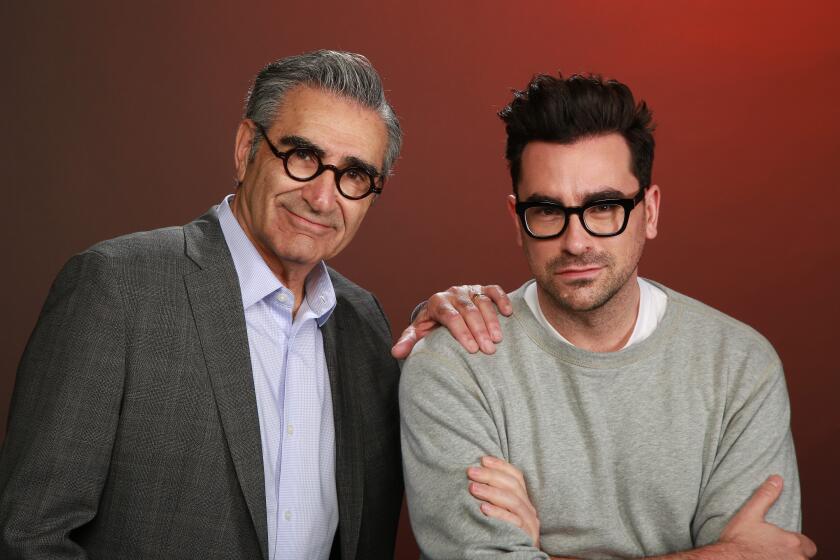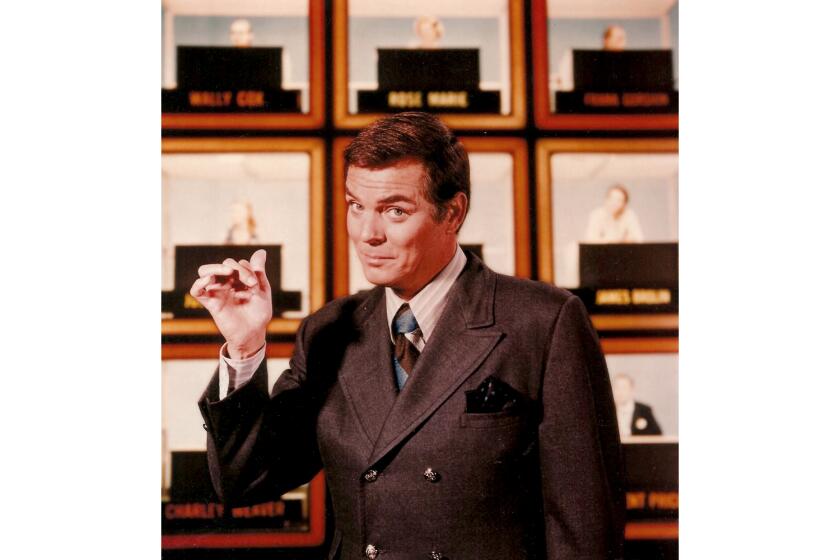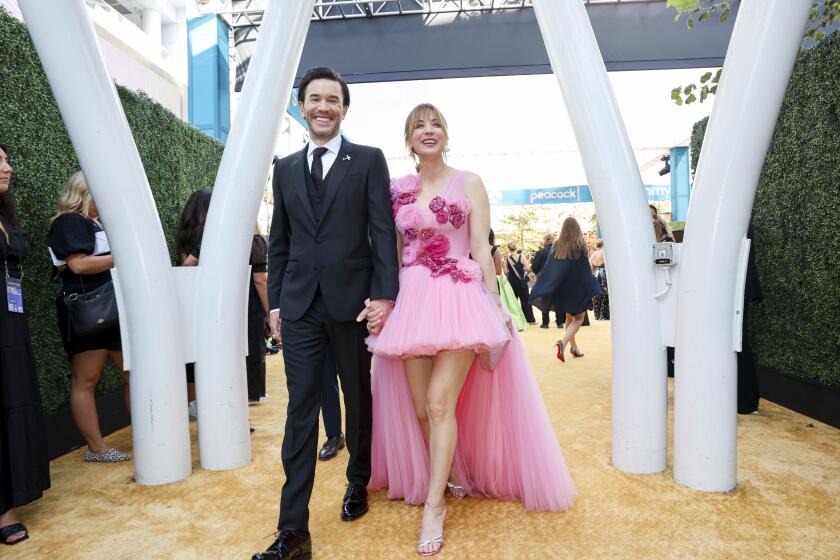Some say the exciting plots of ‘Chicago Hope’ lack medical accuracy. But the drama’s creator says caution <i> is </i> exercised--and that people know too much to be fooled. : False Hope?
An AIDS patient with six months to live is deliberately infected with life-threatening malaria by an enthusiastic hospital researcher.
A devoted wife becomes pregnant so the brain cells of her fetus can be “harvested” in the operating room to treat her husband’s Parkinson’s disease.
With inflammatory story lines like these, some viewers of “Chicago Hope” are wondering if the Monday night doctor drama is giving false hope to real people with incurable diseases.
But “Hope” creator David Kelley counters that such emotional stories reflect the legal and ethical dilemmas that define the ever-changing practice of medicine. “When there is reason to be cautious, when there are problems, when there is futility, we try to emphasize that in our story,” he says.
Still, Kelley concedes, “(Viewers) don’t always hear that part. Perhaps they do get caught up with the hope.”
Since February, dozens of viewers have complained in letters and phone calls about Kelley’s highly rated show. Parkinson’s patients, medical researchers, ethicists and AIDS activists are accusing writers of creating exciting plots at the expense of patient hopes and medical accuracy.
Officials of the American Parkinson Disease Assn. say they now regret helping the show prepare its March 20 episode on fetal tissue transplants--a politically volatile procedure that has raised hot protest from abortion opponents. The program, critics say, was riddled with inaccuracies.
And, in that show--as in the Feb. 20 episode about Dr. Henry Heimlich’s unproven “injected malaria therapy” for HIV--the program ended before the patient’s fate was resolved. Such ambiguity--along with Kelley’s promise to return to both subjects within the next year--has fueled continuing reaction to the two controversial plots.
While medical melodramas are as old as television, the genre is not usually considered a reliable source for scientific information.
But today’s generation of high-tech TV hospital shows--most notably, “Chicago Hope” and its main rival, “ER”--have been acclaimed for capturing the drama of real-life medicine, more authentically than such predecessors as “Ben Casey” or “Marcus Welby, M.D.” of the ‘60s and ‘70s.
While the use of real-life medical subjects wins audiences, it also raises false expectations that the programs will be more factual and therefore more credible. This comes at a time when patients have taken more care to educate themselves, but still are not thoroughly knowledgeable.
“The fact is that people believe what they see and hear on television . . . regardless of its merits,” says Dr. Paul Bronston, an emergency room physician and member of the American College of Medical Quality.
In a letter to “Chicago Hope” medical consultant Dr. Dennis Cooper, Bronston warned that the show involving malaria therapy might have sent a wrong message to the public “at a time when (we) need to have an increased vigilance regarding potentially dangerous AIDS therapies.” While Bronston and other critics of the Heimlich treatment worry that the show might have legitimized the therapy, Kelley said the point of the episode, which he wrote, was to explore the “extreme desperation of a dying patient.”
Even so, says Martin Majchrowicz of AIDS Project Los Angeles, “Any medium that reaches millions of people has a responsibility to make it clear what the truth is.”
In the case of the malaria-AIDS treatment, he says, that means “showing what malaria can do to someone, because it is not pleasant and can make death even more unpleasant.”
Heimlich’s research, which involves injecting malaria-infected blood into HIV-positive patients--which Heimlich claims jump-starts the immune system--has been banned in the United States and Mexico, but is being conducted among a small group of volunteers in China. The project, which has received hundreds of thousands of dollars from some members of the Hollywood community, is the latest and most controversial undertaking by the inventor of the famous anti-choking maneuver.
“Hope” viewers angered by the Parkinson’s plot have complained that the episode could inflame the already powerful opposition to research and therapy involving fetal tissue obtained from abortions.
During the George Bush Administration, such research was banned in the United States. But since President Clinton lifted the ban about two years ago, half a dozen medical centers throughout the nation have been quietly transplanting fetal cells obtained from abortions into the brains of Parkinson’s patients.
While the procedure does not cure the disease, it can reverse many of its most painful and debilitating neurological symptoms.
In “Hope’s” story about a couple who decide to conceive a child solely to harvest its brain tissue for the husband’s treatment, the issue of abortion is raised in a series of emotionally charged conversations between men and women on the hospital staff.
“We did everything in our power to help ‘Chicago Hope’ present this in a sensitive, factual manner,” says Kimberly Kirkland Seidman, West Coast director of the Parkinson association, “but the very thing we were most concerned about happening did indeed happen. . . . There is no way (a woman becoming pregnant solely to harvest fetal cells) could ever occur. (Federal) guidelines completely preclude it, as do the requirements of the surgery. There simply are not enough fetal cells from a single abortion to do the procedure.”
Kelley, a former producer of “L.A. Law” and creator of “Picket Fences,” says “Chicago Hope” relied on information from sources other than the National Institutes of Health to prepare that episode.
But that detail was apparently lost on at least one Southern California viewer, according to a Parkinson’s activist. The morning after the show, the mother of a man with Parkinson’s disease called her daughter-in-law and suggested that she become pregnant to provide fetal cells for her son’s treatment.
While shocked by the nature of the reaction, Kelley said he wasn’t surprised that viewers responded.
“My feeling has been that patients themselves are too well-informed to derive any artificial hope from our show.
“It isn’t the patients who complain we proffer false hope; it’s others complaining on patients’ behalf and I find that fairly insulting to patients themselves.”
But Joanne Nelson, who has Parkinson’s, disagrees. As she wrote to the show’s producers, “It’s hard to be patient when we can’t rely on ‘Hope.’ ”
The complete guide to home viewing
Get Screen Gab for everything about the TV shows and streaming movies everyone’s talking about.
You may occasionally receive promotional content from the Los Angeles Times.



